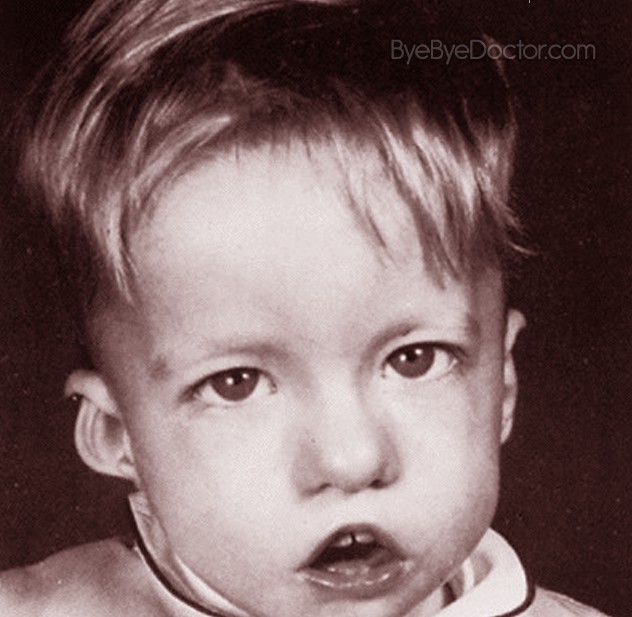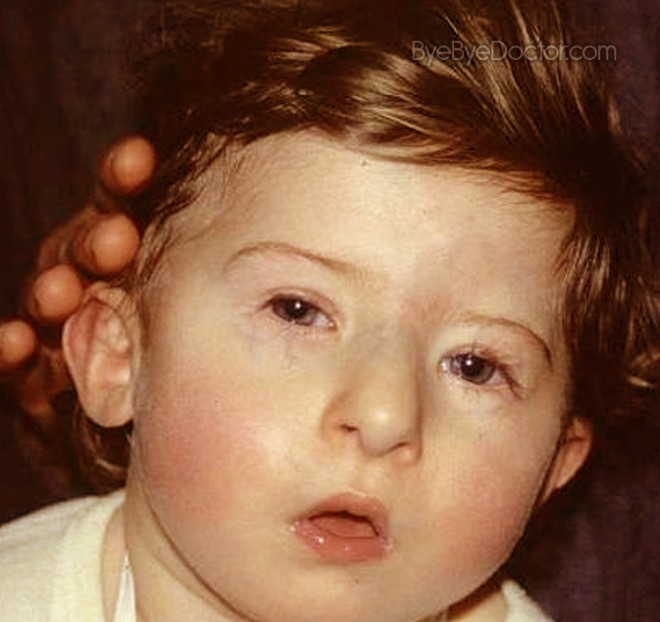What is DiGeorge Syndrome?
This is a disorder that is caused by a defective chromosome – to be exact chromosome 22. This causes poor development of different body systems. This syndrome is also known as “22q11.2 deletion syndrome”.
Problems medically linked with DiGeorge syndrome include poor immunity system function, heart defects, cleft palate, parathyroid gland that functions poorly as well as other behavioral problems.
The severity as well as the number of problems linked with DiGeorge syndrome will vary greatly. Any individual with DiGeorge syndrome will need therapy from many specialists in a diversity of fields.
DiGeorge Syndrome Symptoms
The symptoms and signs of this syndrome may vastly vary in severity and type. This disparity is contingent on what bodily structures are affected as well as how bad the deficiencies seem to be. Some symptoms and signs can be seen immediately at birth, but many others might not develop until far along in infancy or in early childhood.
Symptoms and signs can consist of some mixture of the following:
- Tiring easily or weaknesses
- Bluish skin because of poor circulation of oxygen-rich blood
- Failure to gain weight
- Failure to thrive
- Muscle tone that is poor
- Infections that are frequent
- Problems feeding
- Shortness of breath
- Spasms or twitching around the hands, arms, throat or mouth
- Development delays, for example sitting up, rolling over, or other milestones
- Learning difficulties
- Learning delays
- Delayed in development of speech
- Cleft palate or other problems with palate
- Ears that are low-set
- Eyes that are wide-set
- Groove in upper lip that is narrow
Since numerous disorders can cause the symptoms and signs of DiGeorge syndrome, it is important to obtain a prompt and correct diagnosis if your baby or child is showing any symptoms and signs of this disorder.
DiGeorge Syndrome Diagnosis
A conclusion of DiGeorge syndrome is made mainly on the findings of a lab test which detects the “deletion in chromosome 22”. The physician will order this test as well as a grouping of other medical tests.
Since some heart deficiencies are usually linked with DiGeorge syndrome, merely the occurrence of this defect is apt to have the physician to order the lab test for a “chromosome 22 deletion”.
Healthcare team
Since DiGeorge syndrome results in numerous problems as well as disorders, numerous specialists will need to be involved in diagnosing specific disorders, advising therapy or treatments and offering care. The team approach will change as the needs of your child change. Some of the specialists in the care team can include:
- Pediatrician or children’s specialist
- Immunologist or specialist in the immune system
- Cardiologist or specialist in heart problems
- Endocrinologist or specialist in hormonal disorders
- Specialist in maxillofacial and oral surgery – for surgery on situations such as cleft palate
- Occupational therapist specializing in therapy to aid the child in the development of everyday skills
- Therapist specializing in speech
- Therapist specializing in developmental therapy to assist the child in the development of social skills, interpersonal skills as well as age-appropriate behaviors
- Pediatric psychiatrist or psychologist
DiGeorge Syndrome Treatment
There is not any cure for this syndrome. Therapy may normally correct any problems that are critical – such as defect with the heart or calcium levels that are too low. Medical care for mental health, as well as developmental or behavior difficulties are where the real challenge lies and the conclusions are unpredictable.
Therapy and treatments for an individual with this syndrome can include intercessions for the below listed conditions:
http://www.Symptoms-Causes-treatment.blogspot.com detect diseases at an early stage symptoms, and find out the causes and treatments best suited.
Hypoparathyroidism
This condition can normally be treated by calcium supplements, low-phosphorus diet as well as supplements of vitamin D. If sufficient amount of parathyroid tissue is undamaged, it is probable that the child’s parathyroid gland will usually begin the regulation of phosphorus and calcium levels without needing a special diet.
Thymus gland function that is limited
If the individual has selected thymic functioning, infections will probably be recurrent but not automatically severe. These illnesses – normally frequent ear infections as well as colds – are treated as with any other normal child. The majority of children with thymic function that is limited will still need to follow the approved schedule for vaccines. With these children, the immunity system functioning will get better as the child grows older.
Thymus dysfunction that is severe
If thymus dysfunction is severe or if there is no thymus, the child is susceptible to all type of infections. Treatment for this requires a thymus tissue transplant, cells that are taken from bone marrow or disease-fighting blood cells that are specialized.
Defects of the heart
Most with this syndrome need surgery to mend as well as correct circulation of blood.
Cleft palate
This as well as other abnormalities of the palate are able to be repaired surgically.
Development overall
The child will profit from a wide variety of therapies, from occupational therapy to speech therapy as well as developmental therapy. In the US, most early intervention therapy programs offer all kinds of therapy and are normally obtainable thru any state’s health department.
Care of mental health
Medication for mental health can be advised if the child is at some time identified with hyperactivity disorder/attention-deficit, schizophrenia, depression or other mental health disorders.
DiGeorge Syndrome Prognosis
The prognosis for any child with DiGeorge syndrome is variable with many infants dying from devastating seizures, infections or failure of the heart within the first year. A 1 month mortality rate of 55% as well as a 6 month mortality rate of 86% has been conveyed. Prognosis is mostly linked to the heart defects and their severity as well as the fractional presence of the thymus gland.
DiGeorge Syndrome Life Expectancy
For those individuals who survive infancy and early childhood, the life expectancy for an individual with DiGeorge syndrome is that they can live a normal life span. In the majority of cases, they will need to have constant care and will need to be in treatment for varying medical problems. The burden on the families is huge but there are support groups for caretakers that offer support and help.
DiGeorge Syndrome Pictures


